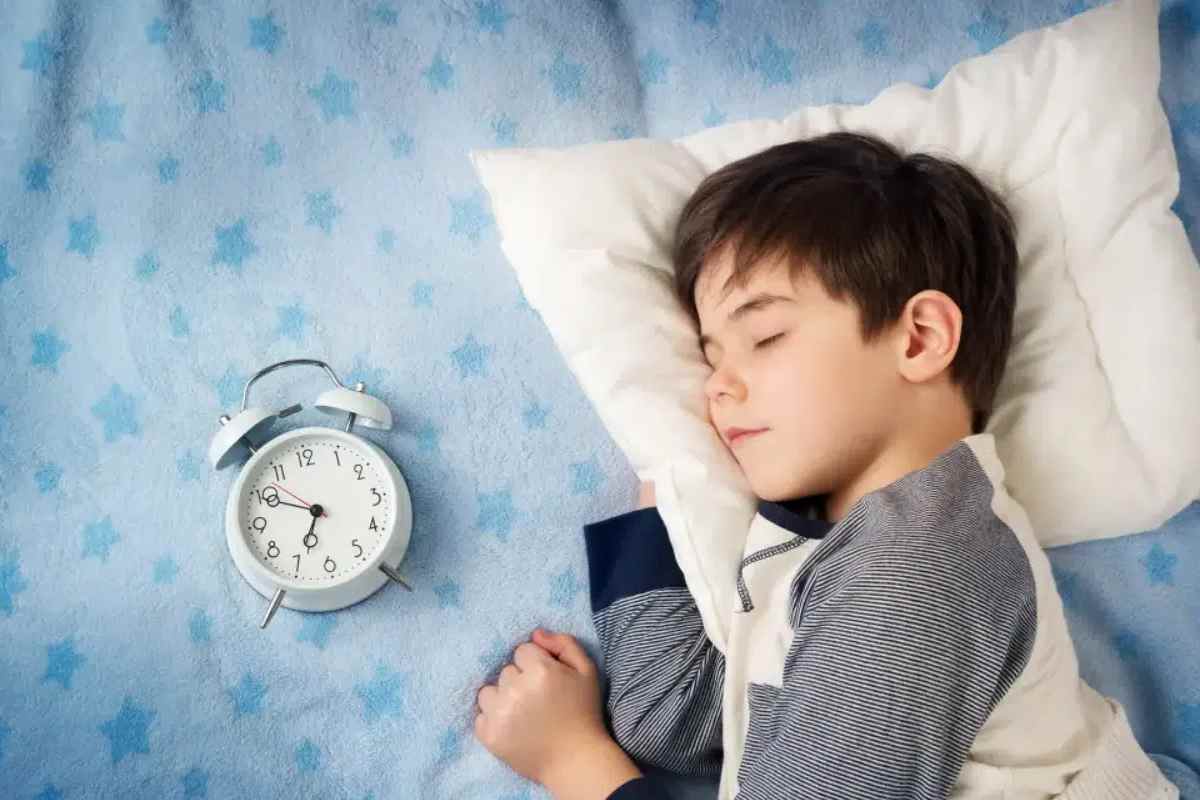Ways to Teach a Child Healthy Sleep Habits It’s important to fall asleep and stay asleep for a good night’s sleep. Most kids wake up on their own if they slept well enough the night before.
I’m going to bed.
Most kids are asleep in 20 minutes or less after going to bed. Children’s bedtime and morning rituals and how weary their bodies are can affect how long it takes them to fall asleep. Children who have regular nighttime habits have an easier time falling asleep.
Table of Contents
Staying Asleep
Children wake briefly during the night but might not be aware of being awake. Disturb sleep; children must be able to sleep alone after these brief waking episodes.
How to Sleep Better for Children: Tips
Set up a Bedtime Routine
A regular bedtime routine starting everywhere simultaneously each night encourages good sleep patterns. A bedtime bath, story and performance can help younger children feel prepared for sleep. For older children, the monotonous might include a silent chat with you about the day, then some time alone relaxing before lights out.
Relax Before Bedtime
Encourage your child to relax beforehand bedtime. Older children like to wind down by reading books or practising living for relaxation. If your youngster takes extended than 30 minutes to fall asleep, your child might need a longer wind-down time before turning the lights out to sleep.
Keep Regular Sleep and Wake Times
Keep your child’s time to retire and wake-up times within 1-2 hours of each other each day. It helps to save your child’s body clock in a regular pattern. It’s a good idea for weekends, holidays, and school days.
Keep Older Children’s Naps Primary and Short
Most excellent children stop napping at 3-5 years of age. If your youngster over five years is still sleeping during the day, try to keep the nap to no longer than 20 minutes and no later than early afternoon. Longer and after naps can make it harder for children to sleep at night.
Brand Sure your Child’s Textures are Safe at Night
If your child feels frightened about going to bed or existence in the dark, you can praise and reward them when they’re brave. Circumventing scary TV shows, movies, and computer games can assist too. Some children with time to retire fear feel better when they have a night light.
Avoid the Clock
If your child is examining the time often, inspire them to move the clock or watch an advertisement where they can’t see it from bed.
Eat the Correct Amount at the Right Time
Make sure your child has a satisfying sunset meal at a reasonable time. You were feeling starving or too full before bed can make your child more alert or uncomfortable. It can make it harder for your child to get to sleep. A healthy breakfast helps kick-start your child’s body clock at the right time in the morning.
Get Plenty of Natural Light During the Day
Encourage your youngster to get as much natural light as possible during the day, especially in the morning. Bright light suppresses melatonin. It helps your child feel wide awake and alert during the day and tired towards the time to retire.
Child Healthy Sleep: Avoid Caffeine
Caffeine is in energy nibbles, coffee, tea, chocolate and cola. Please encourage your child to avoid these things in the late afternoon and evening and don’t offer them at these times.
Child Healthy Sleep Tips
What is Sleep Hygiene?
The term “sleep hygiene” can be misleading, as it doesn’t include washing your face or brushing your teeth before bed. (But remember to do those things, too!)
Sleep hygiene is science-backed practice — during the day and before bedtime — that help creates the ideal conditions for healthy sleep, which can mean the difference between a restful night and a restless one.
What are the Cyphers of Poor Sleep Hygiene?
When you climb into bed, fixes it take incessantly to fall asleep? Or are you out like a light the minute your skull hits the pillow, only to wake up at 2 am, tossing and turning? If one of these labels you, you’re in good company. Or perhaps not so good.
According to the Middles for Illness Control and Deterrence (CDC), more than a third of American English aren’t getting the recommended 7-9 hours of sleep needed for our general health and well-being. Some of this might be a consequence of poor nap hygiene.
The most obvious signs of poor nap hygiene are trouble falling asleep, disrupted sleep, and — of course — feeling tired and foggy throughout the day. Sleep lack slows our reflexes, sabotages decision-making and saps originality.
A recent study showed that failing to get sufficient sleep can also make us feel anxious and sad. The study linked sleep lack to problems diverting our attention away from negative thoughts and ideas, which may put us at a better risk for depression.
Happy Newscast:
Getting good sleep is more accessible than we imagine. For a start, we can practice healthy sleep hygiene habits that encourage better rest and help you stay refreshed and aware during the day.
Conclusion
Child Healthy Sleep – The key to a restful night’s sleep is to fall asleep and remain asleep. If they receive enough excellent sleep, most kids get up on their own in the morning. Falling asleep: Within 20 minutes of successful to bed, most kids are sleeping. The time it takes for children to fall asleep might vary depending on how weary their bodies are and their bedtime and everyday routines. Children who have regular bedtimes can relax before going to sleep more quickly.

